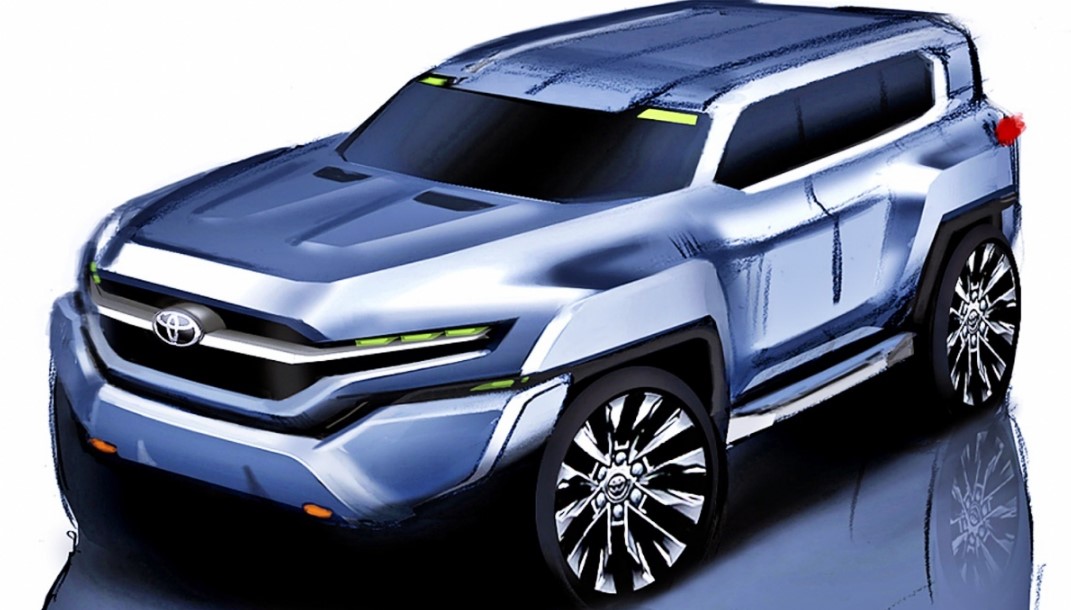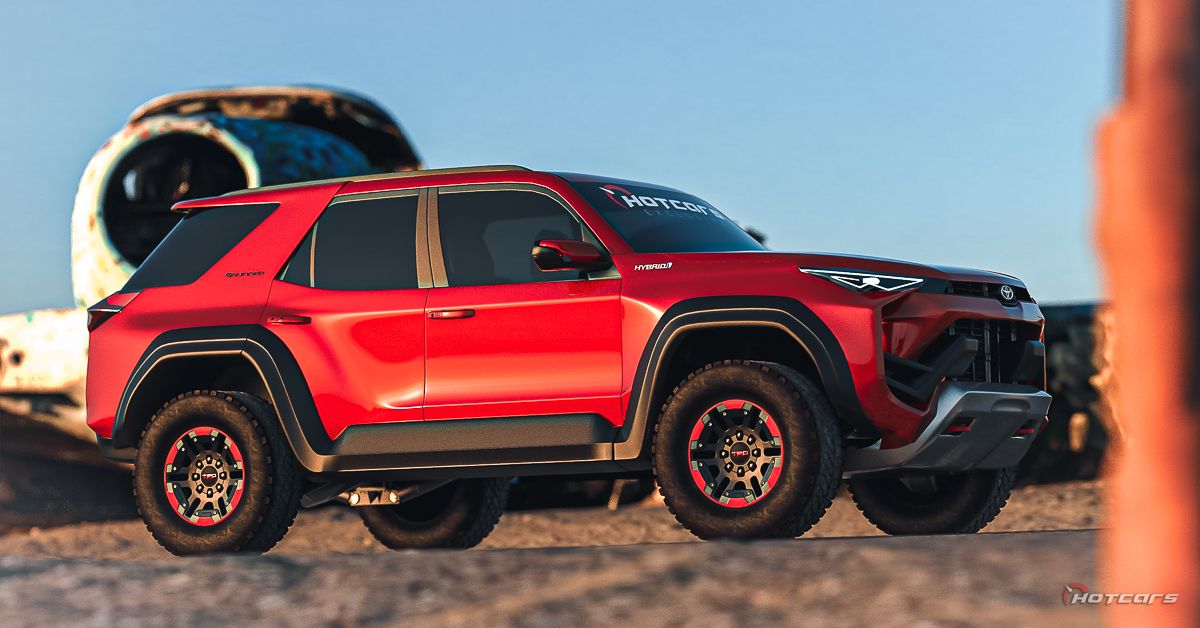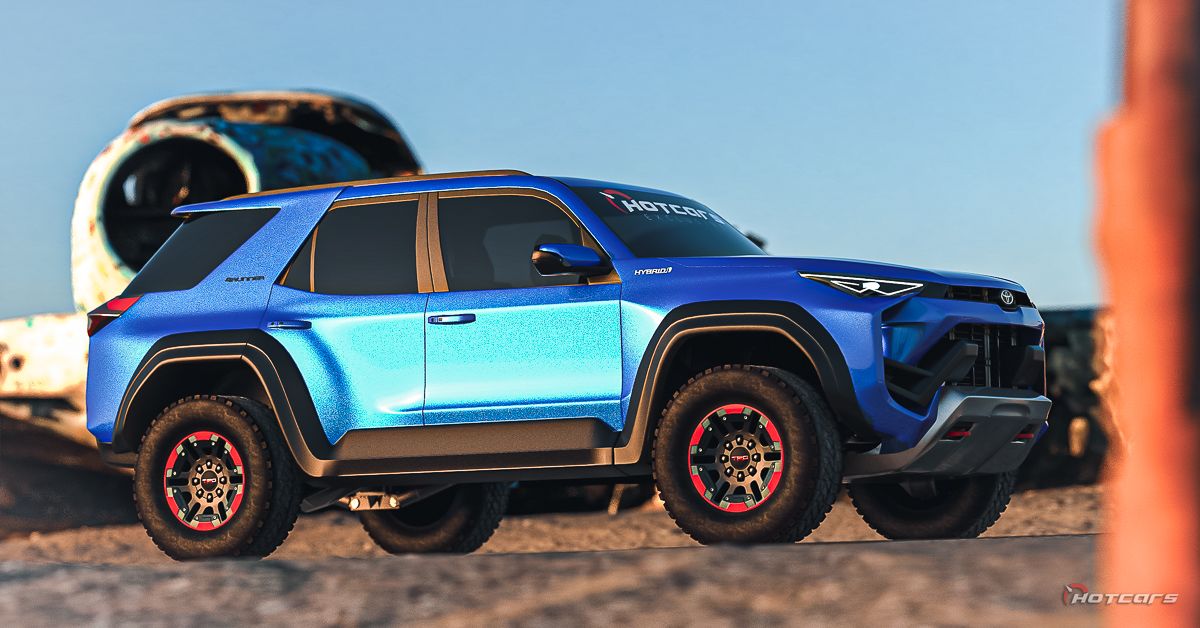The Future of Fuel Efficiency: Exploring the Potential of the 2025 Toyota 4Runner
Related Articles: The Future of Fuel Efficiency: Exploring the Potential of the 2025 Toyota 4Runner
Introduction
In this auspicious occasion, we are delighted to delve into the intriguing topic related to The Future of Fuel Efficiency: Exploring the Potential of the 2025 Toyota 4Runner. Let’s weave interesting information and offer fresh perspectives to the readers.
Table of Content
The Future of Fuel Efficiency: Exploring the Potential of the 2025 Toyota 4Runner

The Toyota 4Runner, a stalwart in the SUV segment known for its rugged capabilities and off-road prowess, has long been celebrated for its durability and dependability. However, its fuel efficiency has often been a point of contention, particularly in the face of increasing fuel prices and growing environmental concerns. While the exact fuel economy figures for the 2025 4Runner are yet to be officially released, industry trends and technological advancements suggest that significant improvements are likely on the horizon.
The Drive Towards Efficiency
The automotive industry is undergoing a dramatic shift towards greater fuel efficiency and reduced emissions. Governments worldwide are implementing stricter regulations, consumers are increasingly demanding eco-friendly options, and manufacturers are investing heavily in research and development to meet these challenges. This push towards efficiency is evident in the continuous advancements in engine technology, hybrid and electric powertrains, and aerodynamic design.
Factors Influencing 2025 4Runner Fuel Economy
Several factors are likely to contribute to improved fuel economy in the 2025 4Runner:
- Engine Optimization: Toyota is known for its innovative engine designs. The 2025 model could feature a more efficient version of the current V6 engine, potentially incorporating direct injection, variable valve timing, and other technologies to optimize combustion and reduce fuel consumption.
- Hybrid Powertrain: The introduction of a hybrid powertrain is a strong possibility. The combination of a gasoline engine and an electric motor can significantly boost fuel economy, particularly in urban driving conditions.
- Aerodynamic Enhancements: Refinements to the 4Runner’s body design, such as a more streamlined front end and reduced drag coefficient, can contribute to improved fuel efficiency by minimizing air resistance.
- Weight Reduction: Lighter materials, such as aluminum and high-strength steel, can be implemented in the vehicle’s construction, resulting in a reduction in overall weight and, consequently, improved fuel economy.
- Advanced Transmission: A more efficient transmission, such as a continuously variable transmission (CVT) or a new generation of automatic transmission, can optimize gear ratios for optimal fuel consumption.
The Importance of Fuel Efficiency
Improved fuel economy in the 2025 4Runner holds significant benefits for both individual drivers and the environment:
- Lower Fuel Costs: Reduced fuel consumption translates into lower expenses at the pump, offering drivers significant financial savings over the long term.
- Reduced Emissions: Lower fuel consumption directly contributes to reduced greenhouse gas emissions, playing a crucial role in mitigating climate change and improving air quality.
- Enhanced Driving Range: Improved fuel economy extends the vehicle’s driving range, allowing drivers to travel further on a single tank of gas, particularly advantageous for long road trips or off-road adventures.
- Enhanced Sustainability: By embracing more fuel-efficient technologies, Toyota demonstrates a commitment to sustainability and responsible environmental practices, appealing to environmentally conscious consumers.
Frequently Asked Questions
Q: What is the estimated fuel economy of the 2025 4Runner?
A: While specific fuel economy figures for the 2025 4Runner are not yet available, based on industry trends and technological advancements, it is reasonable to expect significant improvements over the current model. A hybrid powertrain could potentially deliver fuel economy figures in the high 20s or low 30s mpg, depending on driving conditions and trim level.
Q: Will the 2025 4Runner maintain its off-road capabilities?
A: Toyota is likely to prioritize maintaining the 4Runner’s renowned off-road capabilities while incorporating fuel-efficient technologies. The company has a history of balancing performance and efficiency, and the 2025 model is expected to continue this tradition.
Q: Will the 2025 4Runner be available with a hybrid powertrain?
A: The introduction of a hybrid powertrain for the 2025 4Runner is a strong possibility, given the increasing demand for fuel-efficient options in the SUV segment. Toyota’s expertise in hybrid technology, coupled with the growing popularity of hybrid SUVs, suggests that a hybrid 4Runner is a viable option.
Q: What are the potential drawbacks of a hybrid 4Runner?
A: While hybrid powertrains offer significant fuel economy benefits, they may come with some drawbacks:
- Higher Initial Cost: Hybrid vehicles typically have a higher sticker price compared to their gasoline-only counterparts.
- Increased Complexity: Hybrid systems involve additional components, potentially increasing maintenance costs and complexity.
- Limited Off-Road Capabilities: While hybrid powertrains can enhance fuel economy, they might slightly reduce the vehicle’s off-road capabilities due to the additional weight and potential limitations in extreme conditions.
Tips for Improving Fuel Economy
Regardless of the fuel efficiency improvements in the 2025 4Runner, drivers can take proactive steps to maximize fuel economy:
- Drive Smoothly: Avoid aggressive acceleration and braking, as these actions consume more fuel.
- Maintain Proper Tire Pressure: Underinflated tires increase rolling resistance, leading to reduced fuel economy.
- Minimize Cargo Weight: Excess weight in the vehicle reduces fuel efficiency.
- Plan Routes and Avoid Traffic: Minimize unnecessary driving and plan routes to avoid congested areas, which can lead to increased fuel consumption.
- Regular Maintenance: Ensure that the vehicle is properly maintained, including regular oil changes and air filter replacements, to optimize performance and fuel economy.
Conclusion
The 2025 Toyota 4Runner is poised to be a significant step forward in terms of fuel efficiency, reflecting the industry’s commitment to sustainability and consumer demand for eco-friendly options. While the exact fuel economy figures remain to be seen, the combination of advanced engine technology, potential hybrid powertrain, and aerodynamic enhancements suggests a substantial improvement over the current model. These advancements will not only provide drivers with financial savings but also contribute to a cleaner and more sustainable future. As the automotive landscape continues to evolve, the 2025 4Runner stands as a testament to Toyota’s commitment to innovation and its role in shaping a more fuel-efficient and environmentally responsible future.








Closure
Thus, we hope this article has provided valuable insights into The Future of Fuel Efficiency: Exploring the Potential of the 2025 Toyota 4Runner. We thank you for taking the time to read this article. See you in our next article!